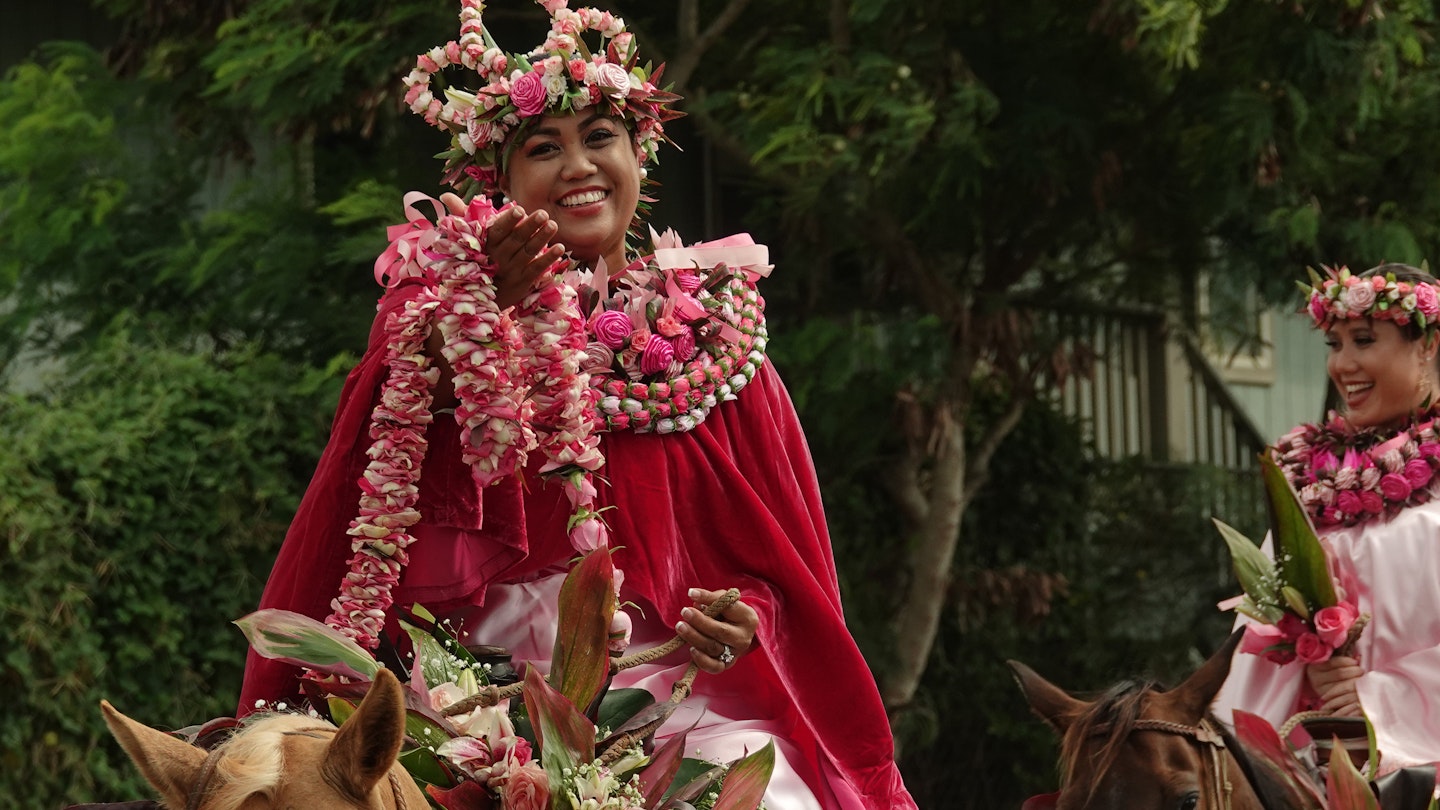Hawaiian culture is about much more than melodic place names and luaus. The arts, both healing and traditional, are experiencing a revival, while ancient heiau (temples), native forests, and coastal fishponds are being restored. Resorts, outdoor outfitters, and philanthropic groups are intentionally spotlighting long-held customs and traditional activities. Consequently, visitors are increasingly encouraged to slow down and learn about this cultural heritage.

Paddle an Outrigger Canoe
Polynesians were Hawaiʻi’s first settlers, mastering the art of paddling outrigger canoes across 2,000 miles of open ocean. Outrigger canoes are equipped with a stabilizing float, attached to the canoe by two bars. European explorers were awestruck at the skill Hawaiians displayed during launches and landings, paddling gracefully among the waves. Today, canoe clubs continue to preserve this rich tradition.
Join a morning paddle with the Kihei Canoe Club in North Kehei. Participants must be at least eight years old, and a donation of $40 per person is requested. Regular sessions take place every Tuesday and Thursday morning, beginning at 6:30 am on Kenolio Beach, where club members provide instruction and guide paddlers through the rhythmic chant of ‘E Ala E.
As you paddle along the coastline in the club’s distinctive red-and-gold waʻa (canoes), keep an eye out for majestic whales and green turtles. Moreover, club members often share insights about Hawaiian culture and local marine life during your adventure. Some outings may even include a stop at the historic Koʻieʻie Fishpond, where volunteers discuss ancient fishing practices.
After your paddling experience, enjoy complimentary coffee and snacks on the beach. Pause by a nearby establishment for some delectable post-canoeing treats.
Attend the Masters of Hawaiian Slack Key Guitar Concert Series
The atmosphere is warm and inviting on Wednesday nights at the Aloha Pavilion, where exceptional slack-key guitarists like Ledward Kaapana grace the stage. This unique Hawaiian fingerstyle is showcased weekly, hosted by the legendary George Kahumoku Jr. This blending of concert and jam session offers an authentic cultural experience.
While reservations are advisable, tickets may also be available at the door. Concerts run from 6:30 pm until 8:15 pm, and ticket prices range from $40 to $60.

Walk through Kepaniwai Park & Heritage Gardens
Diverse cultures shape modern life in Maui. At Kepaniwai Park & Heritage Garden, visitors are invited to stroll through exhibits that reflect various ethnic communities settling on the island. Explore a traditional Japanese teahouse with shoji screens and koi ponds, a Hawaiian thatched-roof hut with a loʻi kalo (taro patch), and a Portuguese courtyard with a tiled fountain and bread oven.
- Experience gardens dedicated to Chinese, Korean, Filipino, Puerto Rican, New England, and African American immigrants.
- Enjoy photographic opportunities amidst the lush greenery and detailed scenery.
- Most weekends, the park buzzes with local barbecues, family picnics, and birthday celebrations.
For a quieter experience, consider visiting on a weekday afternoon. Don’t forget to carry takeout from one of Central Maui’s local eateries as you immerse yourself in the natural beauty of this serene environment.
Admire the Collections at Hale Hōʻikeʻike at the Bailey House
When exploring Central Maui, make Hale Hōʻikeʻike at the Bailey House a priority. This museum offers valuable insights through guided tours featuring priceless artifacts from the era of the aliʻi (Hawaiian chiefs). The museum lies on the road to ʻIao Valley, making it an ideal stop before hiking in this historically significant area.
The museum’s hours are from 10 am to 2 pm, Tuesday through Friday. Allocate sufficient time for your visit, enjoying both the historical exhibits and the beautiful grounds. Don’t miss the chance to see the Keoni Room, which is the oldest Western structure in Maui.

Hike Past Stone Temples and a Burial Ground in the Halawa Valley on Molokaʻi
If you’re considering a day trip to Moloka’i from Maui, the breathtaking Halawa Valley is worth your time. This area features rich history, once home to more than 1,000 residents before contact with Europeans.
Remains of a burial ground believed to date back to 650 CE and a stone temple create a historical backdrop along the path leading to Moaʻula and Hipuapua Falls. Visitors may still feel the reverberations of its past.
While the valley was once a vibrant agricultural area, maintaining its taro production ceased following massive tsunamis in 1946 and 1957. Today, only a few residents remain; as a visitor, it is essential to respect privately owned areas and any posted signs.
Wander Around ʻUlupalakua
Though travelers often rush through ʻUlupalakua on their way to Hana, this small town has two notable attractions. Maui Wine, a local staple, cultivates six grape varietals across 23 acres. With prior arrangements, visitors can enjoy a comprehensive tasting experience, or simply explore the property and shop for wines.
Furthermore, the expansive ʻUlupalakua Ranch represents the area’s deep agricultural heritage, where cowboys continue to work the land. Don’t miss the ranch store, featuring snacks and beverages, along with a unique grill offering burgers made from grass-fed venison, lamb, elk, or beef—open for lunch only. Ensure you allocate time during your visit for a memorable meal.




